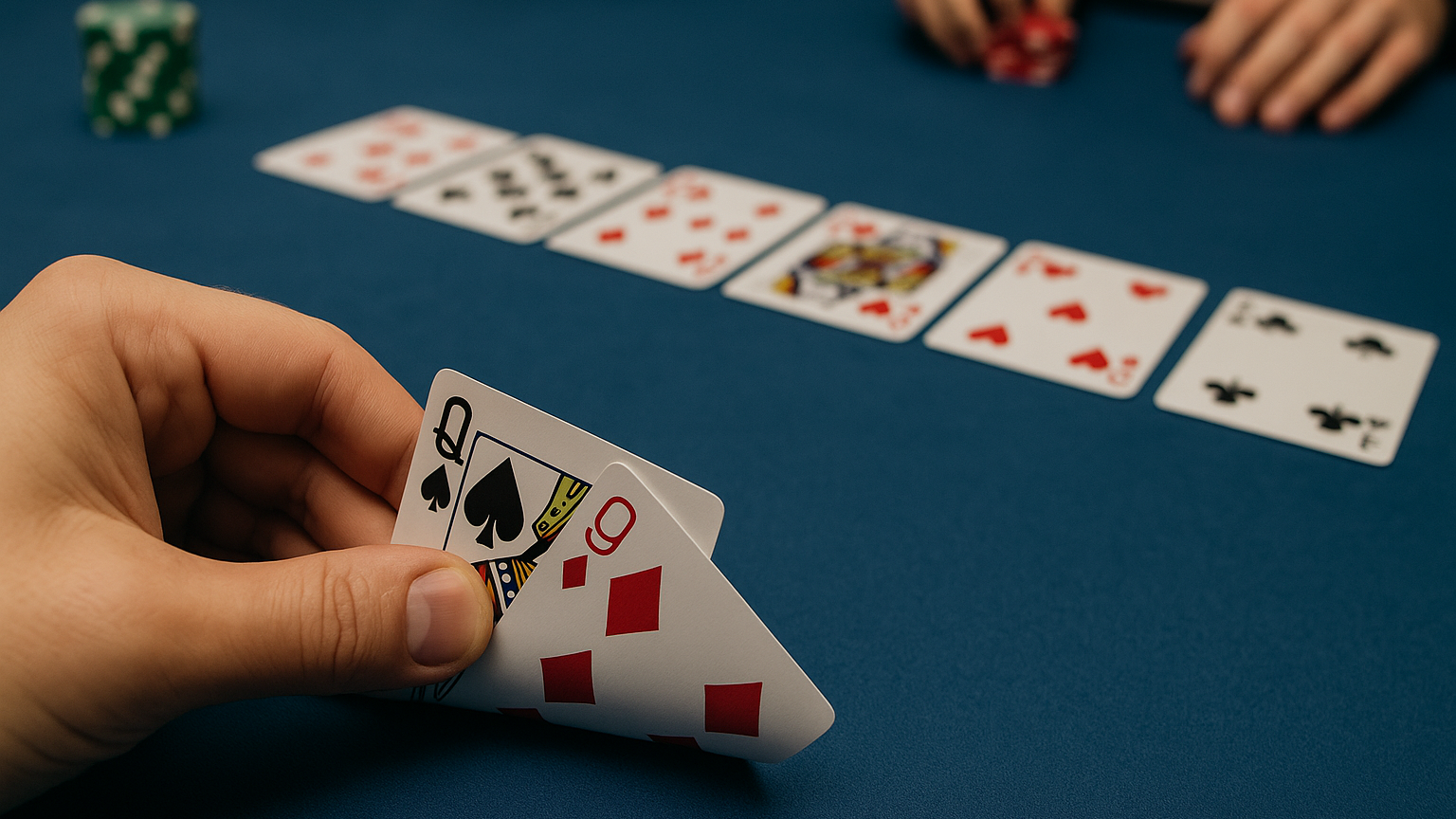The good news? These mistakes are fixable. You do not have to turn into a math genius. You just need to spot a few patterns and be honest with yourself about what you are doing at the tables.
Many players focus only on “running bad” and forget to check if they are even playing in the right place. The quality of the room, the rake, and the bonuses all matter. That is why review sites like NajboljseIgralnice, which offers factual and unbiased casino reviews, can be useful before you even play your first hand. Once you sit down, though, it is your decisions that decide what happens next.
Mistake 1: Playing Too Many Hands
This is the classic money burner. You look at a hand like Q9 offsuit and think, “It’s kind of pretty, let’s see a flop.” Ten minutes later you are calling down with the second pair against a tight player who never bluffs.
In low and mid-stakes games, the easiest way to improve is simple: play fewer hands, especially out of position. Fold more from early positions. Stop limping. Raise strong hands. When in doubt, fold the trash and wait.
Tight does not mean boring. It means you stop paying to see flops with hands that will only get you into painful spots.
Mistake 2: Ignoring Position and Stack Sizes
Position is not a fancy concept for pros; it is a basic tool. Being last to act means you see what everyone else does before you decide. That alone is worth money.
If you play the same hands from an early position that you play on the button, you are giving up a huge edge. Add stack sizes on top of that. Short stacks limit your bluffing options and your implied odds. Deep stacks make small mistakes very expensive.
A simple rule: play tighter out of position, widen up a bit when you are on the button or in the cutoff, and always check how many blinds you and your opponents have before you click call.
Mistake 3: Letting Tilt Control Your Session
You are human. Bad beats hurt. Coolers feel unfair. But if every lost pot turns into a personal crisis, your bankroll will pay the price.
Tilt is not only shouting and slamming the desk. Sometimes it is quiet: calling one more time “to see it”, chasing a bluff because you are annoyed, or staying at the table long after you are tired. To keep your emotions under control, try using a simple in-game checklist:
- Ask yourself if you would make the same play if you were winning.
- Take a short break after a big pot, win or lose.
- Set a stop-loss limit for the day and respect it.
- Close the table if you catch yourself blaming “rigged” cards.
- Review one or two key hands after the session instead of obsessing over all of them.
You do not need to feel nothing. You just need to make sure your feelings do not click the buttons for you.

Mistake 4: Bad Game and Table Selection
Even strong players lose money in the wrong games. If everyone at your table is tight, aggressive, and clearly knows what they are doing, that is not a smart place to “test yourself”. You want tables with loose players, lots of limping, and people who like to call too much.
Online casinos and poker rooms often mix different skill levels at the same stakes. Some platforms, like SlotLords, try to attract a wide range of casual players with simple lobbies and soft games, which can be good news for patient, disciplined poker fans. No matter where you play, get into the habit of checking stats like average pot size and players per flop. If a table looks dead and nitty, just leave. There is no prize for staying in a bad seat.
Mistake 5: No Plan and No Learning
Many players just open a few tables and “see what happens”. There is no clear goal, no bankroll plan, and no review. Over time, this leads to confusion and frustration. You feel like you are always playing, but never really getting better.
Start small:
- Set a bankroll for poker only.
- Choose limits that fit that bankroll.
- Decide in advance how long you will play in one session.
- Mark tricky hands while you play and look at them later with a clear head.
You do not need to study for hours each day. Even 15 minutes of honest review after a session can show you patterns: calling too much on the river, overplaying top pair, or bluffing in awful spots. Once you see those patterns, you can start changing them.
Turn Costly Habits Into Solid Wins
The biggest poker leaks are not secret. You can see them in almost every low and mid-stakes game: too many hands, weak discipline, bad tables, and no review. The players who move ahead are not always the most talented. They are usually the ones who admit their flaws, fix one mistake at a time, and stick to a simple plan.
A respected casino review expert and legal professional, Andrej Jelen, often reminds recreational players that the goal is long-term, repeatable decisions, not one lucky night. His advice is to treat every session as a chance to practice better habits, not to chase quick wins, and to remember that folding is often the most profitable move you will make all evening.
If you start cutting out even one or two of the mistakes in this list, your results will not change overnight, but over weeks and months you will notice something important: you keep more of your money, and you actually enjoy the game more. That is when poker starts to feel worth the time you put into it.




